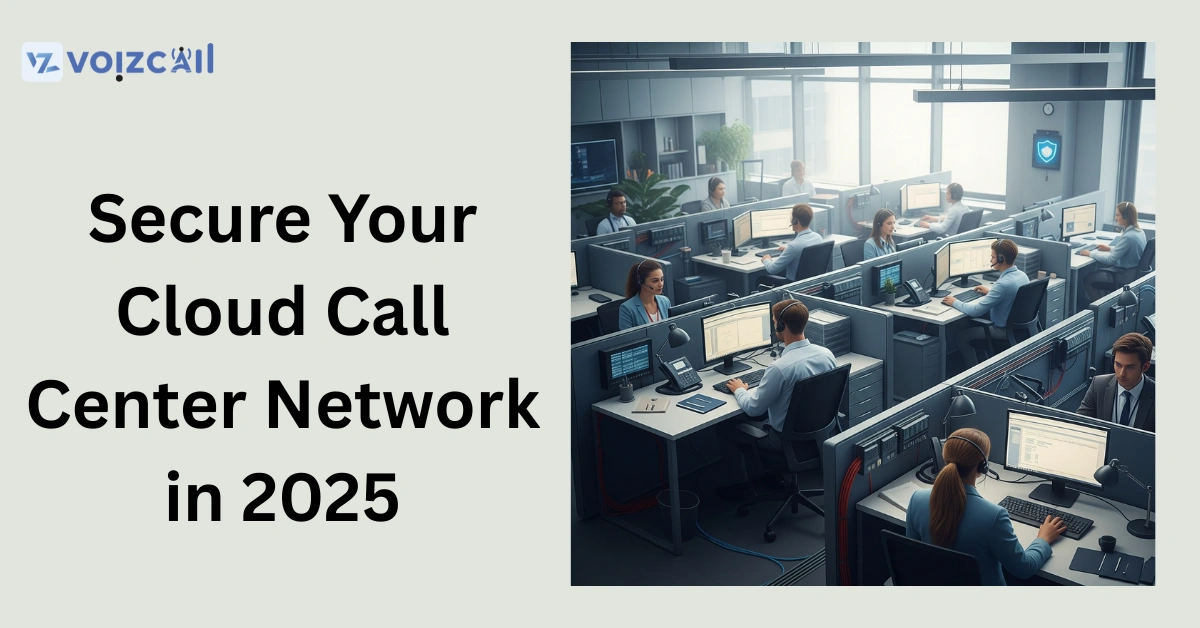


09/Jun/2025
Cloud call centers have become the heart of modern business communication in 2025. They’re fast, flexible, and cost-effective. But with great convenience comes great responsibility—especially when it comes to security.
Cyberattacks are getting smarter, and call centers are prime targets. If your network isn’t protected, customer data, call recordings, and sensitive business details could be at risk.
we’ll show you how to secure your cloud call center network, what threats to watch out for, and the best practices to stay protected in 2025. Let’s make your contact center not just powerful—but bulletproof.
Why Cloud Call Center Security Matters More Than Ever
A cloud call center stores call data, customer details, and recordings in online servers. This means:
You can access it from anywhere.
Your agents can work remotely.
You don’t need heavy on-site equipment.
But all that data moving through the internet? It’s a goldmine for hackers.
Call / Email for Sales Inquiry Today
Some rising threats in 2025 include:
VoIP call hijacking
Unauthorized access to CRM or ticketing systems
Ransomware targeting cloud systems
Data leaks through third-party integrations
That’s why cloud call center security needs to be a top priority—not just for your IT team, but for your entire business.
Best Practices to Secure Your Cloud Contact Center
Let’s break down the top cloud call center security best practices that will help you stay safe and stay ahead.
1. Use a Zero Trust Security Model
Cloud call center zero trust 2025 means: trust no one—verify everything.
This security approach makes sure:
Every user is verified before access.
Devices must be authorized.
Even insiders can't access everything.
It’s a smart way to lock down your network, especially with remote teams.
2. End-to-End Encryption for Calls and Data
All your customer data—whether it’s call logs, payment info, or tickets—should be end-to-end encrypted. This means hackers can’t make sense of the data even if they get in.
Look for providers that offer:
Encrypted voice calls (VoIP security)
Secure file sharing
Encrypted data backups
3. Strong Authentication for Every User
Multi-Factor Authentication (MFA) is no longer optional. Every agent, manager, and admin should log in using a password + an extra verification method (like an app or fingerprint).
This small step can prevent 99% of unauthorized logins.
4. Monitor and Log All Activities
Install monitoring tools that:
Track login attempts
Alert you to suspicious activities
Keep logs of calls and data changes
Cloud call center network security works best when you can see what’s happening in real time.
5. Regular Security Audits & Updates
Your system should never be “set it and forget it.”
Schedule monthly audits, update software, and test your backup systems. Cyber threats change fast—your defense should too.
6. Train Your Team on Cyber Hygiene
Your call center agents are your first line of defense.
Teach them:
Not to click on suspicious links.
To use strong passwords.
To report strange activity.
Security starts with awareness.
Cloud Call Center: Secure, Scalable & Smart
When you follow these tips, your secure cloud contact center will not only protect customer data—but also build trust with clients and improve overall performance.
Here’s why security is your competitive edge:
Build trust with customers
Avoid costly downtime or breaches
Comply with data regulations (like GDPR, HIPAA)
Enable smoother cloud upgrades and scaling
Final Thoughts: Build a Fortress, Not Just a Call Center
In 2025, it’s no longer enough for your call center to be fast and cloud-based. It must be secure by design.
By focusing on cloud call center security best practices, embracing zero trust, and staying one step ahead with regular updates, you can future-proof your operations.